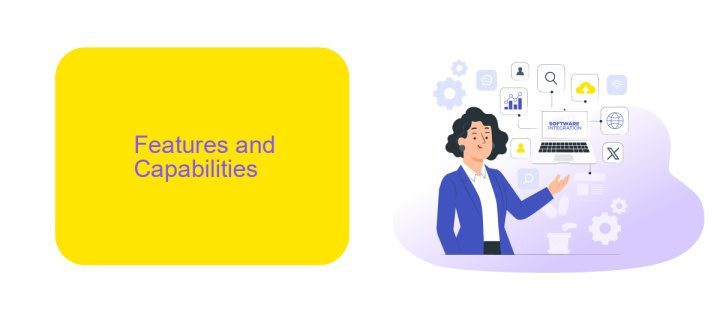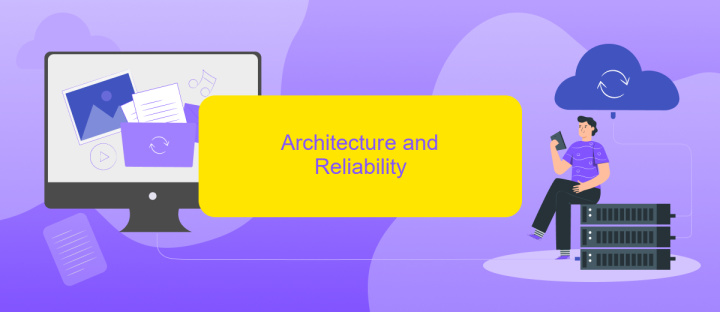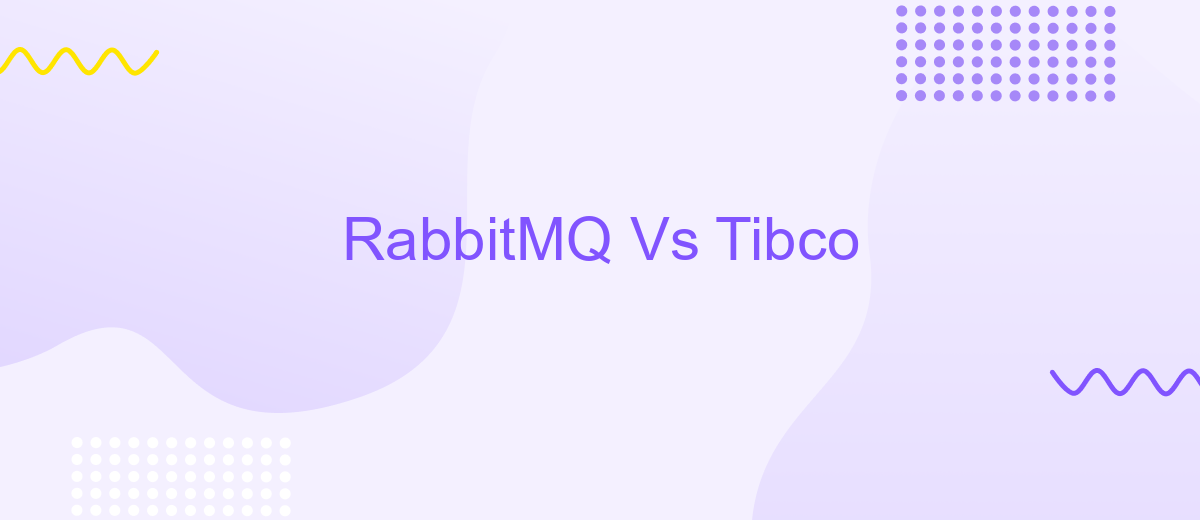RabbitMQ Vs Tibco
In the ever-evolving landscape of message-oriented middleware, RabbitMQ and TIBCO stand out as two prominent solutions, each with its own set of features and capabilities. This article aims to provide a comprehensive comparison between RabbitMQ, an open-source message broker, and TIBCO, a robust enterprise messaging solution, to help you determine which one best suits your business needs.
Introduction and Overview
RabbitMQ and Tibco are two prominent messaging platforms used for integrating various applications and services. Both solutions offer robust features, but they cater to different needs and use cases. RabbitMQ is an open-source message broker known for its simplicity and flexibility, while Tibco provides a comprehensive suite of integration tools aimed at enterprise-level requirements.
- RabbitMQ: Open-source, easy to set up, and supports multiple messaging protocols.
- Tibco: Enterprise-grade, extensive features, and high scalability.
- ApiX-Drive: Simplifies integration processes between RabbitMQ, Tibco, and other services.
Choosing between RabbitMQ and Tibco depends on your specific needs. RabbitMQ is suitable for projects requiring quick deployment and flexibility, whereas Tibco is ideal for complex, large-scale integrations. Tools like ApiX-Drive can further streamline the integration process, making it easier to connect different systems and automate workflows efficiently.
Features and Capabilities

RabbitMQ is a robust messaging broker that supports multiple messaging protocols, making it highly versatile for different use cases. It excels in distributed systems and microservices architectures, offering features like message queuing, routing, and load balancing. RabbitMQ's ease of use and extensive documentation make it accessible for developers, while its plugins and support for various client libraries add to its flexibility. Additionally, RabbitMQ integrates well with services like ApiX-Drive, which simplifies the process of connecting RabbitMQ with other applications and platforms, enhancing overall workflow automation.
On the other hand, Tibco is known for its enterprise-level integration capabilities, providing a comprehensive suite of tools for data integration, analytics, and event processing. Tibco's messaging system, Tibco EMS, is designed for high-performance and reliable message delivery, making it suitable for critical business applications. Tibco offers advanced features like fault tolerance, transactional support, and extensive monitoring tools. It also supports complex event processing and real-time analytics, which are crucial for large-scale enterprise environments. While Tibco may have a steeper learning curve, its powerful features and scalability make it a strong choice for organizations with demanding integration needs.
Architecture and Reliability

RabbitMQ and Tibco are both robust messaging solutions, but they differ significantly in architecture and reliability. RabbitMQ employs a broker-based architecture, where messages are routed through an intermediary server, ensuring reliable message delivery and offering advanced features like message acknowledgments and persistence. Tibco, on the other hand, uses a more distributed approach, often integrating directly with various applications and services to provide high throughput and low latency.
- RabbitMQ uses a centralized broker model for message routing and delivery.
- Tibco leverages a distributed, peer-to-peer architecture for faster communication.
- Both platforms offer message persistence and acknowledgments to ensure reliability.
- RabbitMQ supports multiple messaging protocols such as AMQP, MQTT, and STOMP.
- Tibco provides extensive integration capabilities with enterprise systems.
When integrating these messaging systems with other services, tools like ApiX-Drive can be invaluable. ApiX-Drive offers a seamless way to connect RabbitMQ or Tibco with various applications, automating data flow and enhancing overall system reliability. This ensures that your messaging infrastructure remains robust and adaptable to changing business needs.
Scalability and Performance

When comparing RabbitMQ and Tibco in terms of scalability and performance, it's crucial to consider how each platform handles increasing loads and complex integrations. RabbitMQ is known for its lightweight and efficient message broker capabilities, making it highly scalable for various environments. It supports clustering and federation, allowing it to handle a large volume of messages with low latency.
Tibco, on the other hand, offers a robust enterprise-level solution with extensive integration capabilities. Its architecture is designed to support high throughput and low latency, making it suitable for large-scale deployments. Tibco’s performance is enhanced by its ability to handle complex workflows and data transformations efficiently.
- RabbitMQ: Efficient message broker, supports clustering and federation, low latency.
- Tibco: Enterprise-level solution, high throughput, handles complex workflows.
Both RabbitMQ and Tibco provide scalable solutions, but their performance may vary based on specific use cases and requirements. For seamless integration and automation, services like ApiX-Drive can be utilized to connect these platforms with other applications, enhancing overall system efficiency and scalability.
Conclusion
In conclusion, both RabbitMQ and Tibco offer robust solutions for message brokering and integration needs. RabbitMQ stands out with its simplicity, ease of use, and strong community support, making it an excellent choice for small to medium-sized enterprises that require reliable message queuing. On the other hand, Tibco provides a more comprehensive suite of tools and services, which can be advantageous for large-scale enterprises with complex integration requirements and the need for advanced features like real-time analytics and extensive protocol support.
When deciding between RabbitMQ and Tibco, it is crucial to consider your specific business needs, technical requirements, and budget constraints. Additionally, leveraging integration services like ApiX-Drive can further streamline the process by automating data flows between various systems, enhancing the overall efficiency of your integration efforts. By carefully evaluating these factors, organizations can make an informed decision that aligns with their operational goals and technological landscape.
- Automate the work of an online store or landing
- Empower through integration
- Don't spend money on programmers and integrators
- Save time by automating routine tasks
FAQ
What are the primary differences between RabbitMQ and Tibco?
Which one is easier to set up and use?
How do RabbitMQ and Tibco handle scalability?
Can RabbitMQ and Tibco be integrated with other systems?
What are the best practices for automating and configuring integrations with these tools?
Apix-Drive is a simple and efficient system connector that will help you automate routine tasks and optimize business processes. You can save time and money, direct these resources to more important purposes. Test ApiX-Drive and make sure that this tool will relieve your employees and after 5 minutes of settings your business will start working faster.


